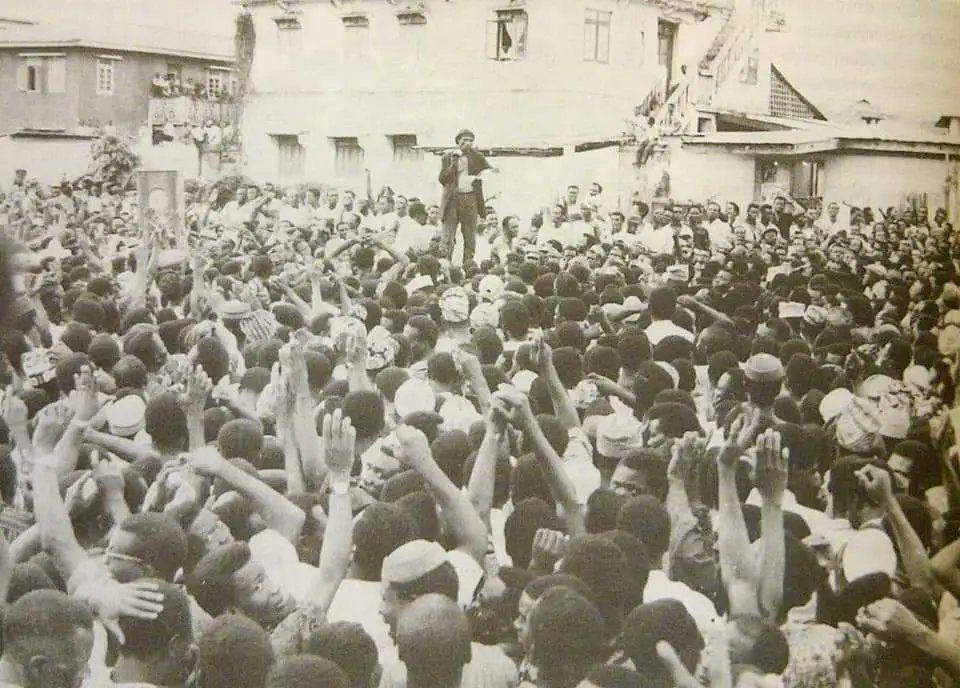In the annals of Nigerian history, an epochal event unfurled in 1945, casting its indelible imprint on the struggle for independence. This momentous occasion manifested in the inaugural nationwide labor movement, heralded by legions of industrious individuals, forever etched in historical lore as the 1945 Nigerian General Strike.
This pivotal episode signposted a turning tide in Nigeria’s quest to break free from the shackles of British colonial dominion. Originating with the resolute railway workers, the fervor of the strike soon permeated diverse sectors, encompassing dock and civil service employees, and even finding solidarity among those employed in private enterprises.
Delving into the backdrop of this seismic event, Nigeria found itself ensconced in the clutches of British colonial rule, a hegemony that had persisted since 1914 and would endure until the dawn of 1960.
The aftermath of the Second World War left the nation grappling with the throes of high inflation, escalating prices, and stagnant wage growth. The government’s attempts to curb inflation proved futile, setting the stage for a coalition of workers, identified as the Joint Executive of Government Technical Workers, to articulate their demands on March 22, 1945.
Their demands were clear-cut—a minimum wage of two shillings and six pence and a 50 percent hike in the Cost of Living Allowance (COLA), retroactively effective from April 1, 1944. Regrettably, the colonial administration rebuffed these demands on May 2, 1945.
In response, the resolute workers issued an ultimatum, vowing to embark on an extensive and enduring strike if their demands remained unmet by Thursday, June 21, 1945.
Despite negotiations between the colonial government and a delegation of workers led by T.A. Bankole on May 30, 1945, no resolution materialized. Just twelve days later, an offer from the colonial government, marginally adjusting their initial stance, was summarily rejected.
In a strategic maneuver on June 2, 1945, the British Colonialists released Michael Imoudu, a prominent labor leader incarcerated since 1943, in a bid to pacify the disgruntled workers. Paradoxically, Imoudu’s liberation served as a catalyst for the strike, as labor historian Wogu Ananaba attested, asserting, “There is little doubt that but for Imoudu’s activities there might have been no General Strike on June 22.”
On June 22, the strike commenced, with railway workers in Lagos signaling its initiation by sounding train whistles at midnight. While not all initially joined the strike, support from fervent nationalists such as Herbert Macaulay, Nnamdi Azikiwe, Adunni Oluwole, and Obafemi Awolowo bolstered the strikers’ resolve, with Imoudu continuing to play a pivotal role in galvanizing workers.
Confrontations arose as strikers discouraged those attempting to persist with work, and the movement swiftly proliferated throughout the colony, with local labor leaders assuming crucial roles in its orchestration.
Undeterred by the colonial government’s propaganda and attempts at mediation through labor leaders, the strike endured, precipitating a cessation of transportation between localities and compelling many to resort to biking or walking.
Despite a warning on July 26 threatening dismissal for those persisting into August, the strike persisted. However, by early August, divisions among the strikers emerged, leading to negotiations and, on August 3, a compromise was reached, culminating in the cessation of the strike, withdrawal of lawsuits against strikers, and job security for the workers.
The narrative of the strike is not devoid of internal challenges, as some nationalists, particularly affiliated with the Nigeria Youth Movement, sought to undermine it. The media landscape mirrored this internal discord, with the Daily Service, the NYM’s newspaper, aligning with colonial authorities and downplaying the strike’s significance.
In retrospect, the 1945 Nigerian General Strike emerged as a watershed moment in the nation’s trajectory toward independence. It illuminated the potency of collective action and unwavering determination among workers and their allies, laying the bedrock for subsequent movements that ultimately ushered Nigeria into hard-earned independence in 1960.

